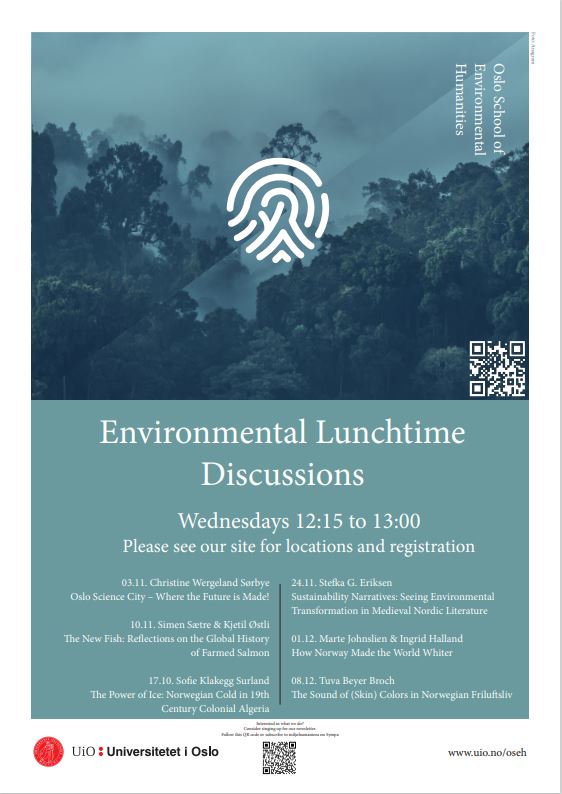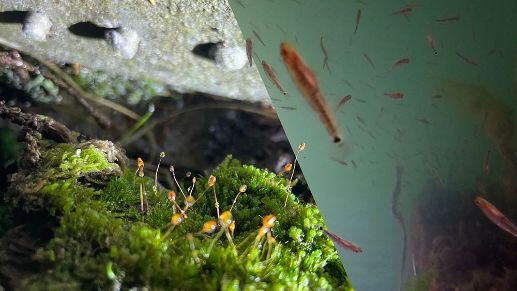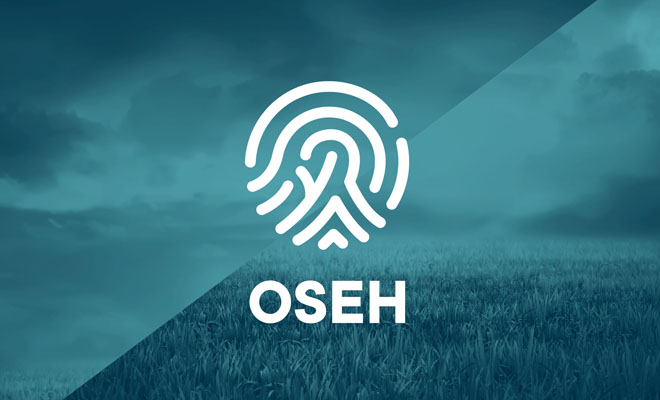Events
OSEH has continued to host a series of events in line with our aims and visions in 2021. In accordance with the current covid-19 regulations, most events have been digital on Zoom which have allowed us to continue to connect with our growing local and international environmental humanities community. This is a short summary of all events organized in 2021, more detailed descriptions can be read on our webpage under News and Events.
Environmental Lunchtime Discussions (ELD)
The weekly Environmental Lunchtime Discussions (ELD) has continued to be one of our most popular events. The ELDs are collaboratively organised by all members of the OSEH working group, thereby guaranteeing a great diversity of topics from various disciplines. In addition, the aim of the event is to go beyond academia and also engage with actors who work in environmental fields such as journalists, politicians, artists, activists, architects, green NGOs and others. Number of participants vary according to topic, but it is generally around 20-40 attendees present every week. We tested the hybrid format in fall 2021 in order to enable participation from our international community to follow the discussions while also welcoming speakers and participants on campus. In 2021, we arranged a total of 33 Lunchtime Discussions (27 digital and 6 hybrid), including a mini-series in collaboration with Growlab, a green urban NGO in Oslo, to mark the "Action Stories": a new online platform that aims to explore and convey through essays, interviews, artworks and actions how the covid-19 crisis could re-calibrate socio-ecological thinking and our individual and collective relationship to nature and each other.
according to topic, but it is generally around 20-40 attendees present every week. We tested the hybrid format in fall 2021 in order to enable participation from our international community to follow the discussions while also welcoming speakers and participants on campus. In 2021, we arranged a total of 33 Lunchtime Discussions (27 digital and 6 hybrid), including a mini-series in collaboration with Growlab, a green urban NGO in Oslo, to mark the "Action Stories": a new online platform that aims to explore and convey through essays, interviews, artworks and actions how the covid-19 crisis could re-calibrate socio-ecological thinking and our individual and collective relationship to nature and each other.
Environmental Humanities Lectures
OSEH hosted a total of 5 Environmental Humanities Lectures (EHL) in 2021, featuring new research by leadning international scholars in the field:
Organised by OSEH Collaboratory "Worlds of Meaning in Conversation" and in association with "Living with Vultures in the Sixth Extinction (LiVE)":
- Capturing life and loss in multispecies relationships: Reflections on filming practices, with Asgeir Helgestad and Ageliki Lefkaditou
- Zoo-futurism: A philosophical and artistic exploration of ego-ecologies, with Dominique Lestel
- Webs of Meaning Revisited; Conservation, Cultivation and Dispossession in the North, with Marianne Lien
Organised by "Fluid Dynamics Collaboratory" and OSEH:
- Do Whales Judge Us: Interspecies History and Ethics, with Dr. Bathsheba R. Demuth
Organised by OSEH:
- Promised World, Earthly Hearings: Liberal Imaginaries, Sustainable Development, and Fugitive Democracy, with Cheryl Lousley
Welcome to the Anthropocene
We created interdisciplinary lectures series Welcome to the Anthropocene as part of the obligatory modules in the Honours Certificate to offer the students a way to acquire “Anthropocene literacy”, and to learn about ongoing environmental research at their own university. In addition, we opened the lecture series to the public, recorded all lectures and published them as open-access talks on our website. The lectures featured 9 leading scholars at UiO across a range of disciplines asking how the age of the "Anthropocene" has transformed their discipline and research. The interest in the series was overwhelming, with more than 3300 registrations and up to 450 participants Zooming in to attend the lectures at most.
We will continue with the lecture series in 2022, and the full programme will be available on our webpage together with the recorded lectures from 2021.
New Environmental Archaeologies
This seminar series was created by Per Ditlef Fredriksen, Thora Petursdottier and Felix Riede with the aim to discuss and build a manifesto for New Environmental Archaeologies. Similar to the Anthropocene lectures, we created a webpage and had open registrations to attend the seminars. More than 770 people registered for attendance. The seminars were recorded and made available on the webpage.
Eco-Slam
The Knowing Natures Eco-slam in December showcased EHS students' final research projects from the course EHS4000 - Knowing Natures: Environmental Research Seminar. One of the aims of the course is to allow students to experiment with creative and arts-driven forms of research dissemination, which resulted in a highly impressive and varied set of projects. At the Eco-slam, the audience could experience performances, poetry readings, film screenings, sound installations, guerilla gardning, and more!

Research
OSEH sent out its final call for new applications to the Collaboratories in February 2021. Four exciting collaboratories were granted support in the final call: Fluid Dynamics: marine Communities, Territory Work, and Ecosystem Change in Anthroponic Oceans, Media Seas of the High North Atlantic, Playing with Deep Time, and Restorations: Mending Heritage landscapes and Biodiversity. In total, since 2019, OSEH has granted funding to ten Collaboratories.
Two grant proposals that explicitly mentioned OSEH as their hosting netowrk and intellectual community at UiO received funding in 2021: OSEH Working Group Member Alejandra Mancilla (IFIKK) received funding for the ERC starting grant "Dynamic Territory", and Ursula Münster (IKOS) was granted funding from the RCN for "Anthropogenic Soils".
In August 2021, we welcomed OSEH rearcher Pierre du Plessis. Pierre will stay with us at OSEH for three years, dividing his time between assisiting with the tasks at OSEH, and research. Pierre has already proven to be a valuable addition ot OSEH, engaging in our activites, expanding our networks, and wokring on publiscations and future grant applications.
Teaching
We were excited to welcome 27 students from 18 different Master's programmes to the first year of teaching in the Honours Certificate in Environmental Humanities and Sciences (EHS).
One of the two mandatory courses in the certificate, EHS4010 - Welcome to the Anthropocene: Interdisciplinary Lecture Series, had guest lecturers from a variety of disciplines interrogate and respond to the epochal concept of the Anthroposcene. The lectures in EHS4010 were also open to a wider audience via Zoom, and was a huge success with more than 3300 registrations and up to 450 participants attending digitally.
In EHS4000 - Knowing Natures: Environmental Research Seminar, Covid-19 forced us to be creative in finding alternative teaching methods to compensate for the planned place-based teaching. Yet, we were still able to conduct two place-based workshops exploring fjord ecologies and urban gardening, and we also offered the students skill-workshops. Additionally, the students conducted small research exercises in their local neighbourhoods, and experimented with various research methods and technologies. The students' projects were presented at an Eco-slam in December (see more under "Events" above).
In September, two of the EHS students shared their experiences as part of the Certificate in an interview on the UiO website.
Starting in late 2021, OSEH also formed a working group to develop plans for a potential full Master in Environmental Humanities at UiO. The group will finalize and dubmit their proposal to the Heads of Department at IFIKK, IKOS and IAKH in 2022.
